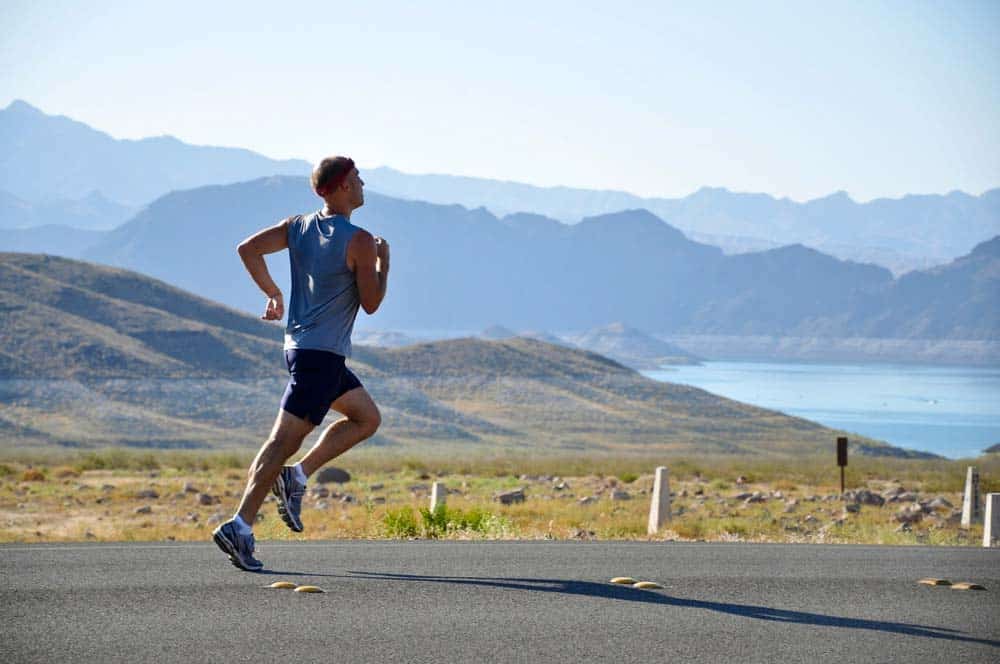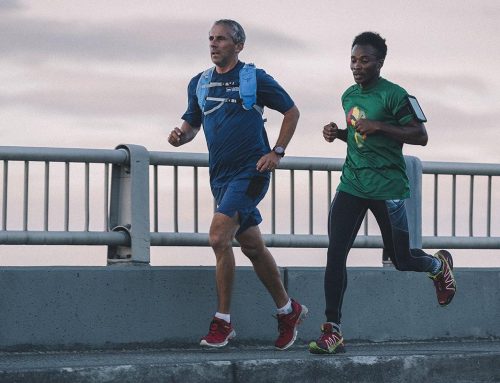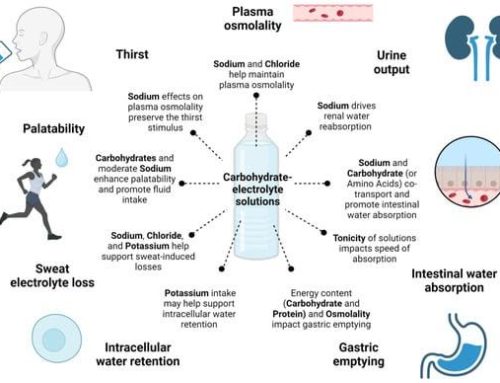Whether you’re new to running or a seasoned marathoner, there’s always some new lingo to learn. Runners are well-known for their seemingly endless stream of jargon, which can leave even the most experienced of racers scratching their heads in bewilderment.
To ensure that you’re always in-the-know, here’s our ultimate list of the most important running terms to get you started.
Contents
A
Age Group
A method of splitting runners up within a large race using their age. Typical age groups include <20, 20-29, 30-39, 40-49, and so forth.
Aid Station
A stand or booth along a race that provides water, gels, and sports drinks to runners. Often staffed by race workers or volunteers.
Athena
The female version of Clydesdale. A race category for heavier female runners above 150lb (68kg). Named for the Greek goddess of courage, wisdom, inspiration, and strength.
B
Bandit
Someone that runs a race without signing up for it and paying the fees. Generally forbidden and can get runners banned from other races.
Base Mileage
A runner’s average per-week mileage. Used to calculate the starting point for a particular running training program or program cycle.
Beer Mile
A fun (kind of) challenge where runners have to drink one beer after every quarter-mile of a one-mile race. Vomiting is not allowed. Good luck.
Bib
The number sheet given to runners to pin on their shirt or jersey before a race. Used for identification purposes.
Blocks
Also known as “starting blocks,” the device used in track events to help sprinters push off at the start of the race. Usually made from metal and rubber with various dials and knobs to adjust both angle and position.
Bloody Nipples
What happens after nipples chafe against a shirt for extended periods of time while running. Most commonly occurs in male runners during particularly cold weather.
More: Men, Don’t Forget: You Have Nipples
Bonk
The result of depleted glycogen energy stores in the muscles during a long run. Not a fun experience. Also known as “hitting the wall.”
Brick Workout
A type of training program that alternates biking and running in the same workout. Makes your legs feel like they’re made of bricks.
Butters
A slang word used to describe an anti-chafing product, such as Body Glide.
C
Carrot
A runner that is particularly attractive, which motivates others to keep up their pace. Similar to a horse following a carrot on a string.
More: Running Behind a Carrot
Certified Course
A race track or course that’s certified by USA Track and Field as being the appropriate length for a marathon or half-marathon. New US national records must be set on a certified course.
Chip
The small electronic device given to runners at the start of a race to record the precise time that they cross the start and finish lines. Often attached to the shoelaces.
Chute
The area at the end of a large street race where runners can group up and reunite with family and friends.
Chub Rub
The ubiquitous experience of chafing from one’s thighs rubbing together during running.
Clydesdale
A running class typically used for heavier male runners above 200lbs (90.7kg). The male version of Athena.
Crop Dusting
The not-so-friendly act of farting as you pass by another runner.
D
Door-to-Trail
A non-competitive run that starts at your door and takes you right onto a trail.
Drafting
Hanging behind another runner to use them as an unofficial pace-setter. Often done without their permission.
Drop Bags
A bag that runners fill with important items for midway through an ultramarathon. Race officials often transport them to a specific location along the racecourse.
E
Etiquette
The proper way to behave while running or racing. A set of unspoken rules about what you can and can’t do while trying to pass others.
Euro Walking
Walking with one’s hands on their knees to help reduce quad burn on long uphill sections of a race or run.
Even Split
When you run both halves of a race at a similar pace.
F
Fartlek
Sweedish term meaning “speed play.” A popular type of training that involves speed variations while running, from a sprint to a slow jog.
Fell Running
A type of trail running that’s most commonly practiced in the UK. Generally refers to running through mountains, bogs, scree, and heather typical of the terrain found in England’s Lake District.
Fitness Leak
Accidentally urinating while running. More common than you might think.
G
Galloway Method
Alternating running and walking during a training run to improve overall speed and performance.
Geezered
When an older runner passes a younger runner during a race.
Ghost Runner
That weird sensation when it feels like someone is running behind you even though there’s no one there.
“Good Job!”
The most annoying phrase to hear as others pass by you. Usually a sign that you’re not actually doing a “good job.”
H
Hammer
Also known as “dropping the hammer.” When you run very fast in a race.
Hill Training
A type of training program that uses hill runs to build up muscular endurance and strength.
I
Interval Training
Alternating running and jogging over a set distance or time to increase one’s speed during training.
J
Junior
According to the IAAF, any runner that is younger than 20 years old by December 31st of a given calendar year.
Junk Miles
Miles run as part of a training program that are completed only to hit a certain per-week mileage.
K
Kicker
The last person in a relay race. Generally the fastest person on the team. Also known as an “anchor.”
L
Leapfrogging
When you pass another runner only for them to pass you again later in the course. A process that generally repeats itself multiple times during a race.
Legal Wind
For sprint races, whenever wind conditions are less than 2.0 m/s in the runners’ favorable direction. Faster wind speeds in this direction disqualify finishing times from world, Olympic, and local records.
More: How Wind Assistance Works in Track and Field
Lotteries
A way to gain entry into a race that’s solely based on luck, not performance.
M
Master
Category for runners over 40 years old.
Metric Mile
Often used to refer to 1,500m races in track running, swimming, and speed skating. Equal to 0.93 imperial (US) miles.
Mile
An imperial unit of measure. Equivalent to 0.868 nautical miles, 1609.34 meters, 5,280 feet, and 1,760 yards.
More: How Many Steps in a Mile?
Mules
Very nice people, usually crew members, that help transport your gear during a long race.
N
Negative Split
Any run time where the second half of the race was completed faster than the first.
Neontino
Runners that dress in all neon clothing.
O
Out and Back
Races that start and end in the same place, covering the same ground twice. Opposite of point to point.
Outside Aid
When a runner receives support outside of a sanctioned aid station. This can sometimes lead to disqualification, depending on race rules.
P
Pacer
A runner that takes part in a race solely to help another maintain their desired pace.
Point to Point
Runs that start in one location and end in another. Opposite of out and back.
Positive Split
When the second half of a race is run at a slower pace than the first half.
Power Walking/Power Hiking
When you walk quickly up a hill during a race instead of running. Actually more efficient than running when done on slopes steeper than a 10% grade.
PR
Personal Record.” An athlete’s personal fastest time for a particular race or event.
Q
Quad Buster
Any run with significant difficult downhill sections.
R
Rabbit
A pace maker in a race. Someone who sets a pace for their teammates during the beginning of the race but drops out before the finish line. Not a legal tactic in the Olympics or World Championships.
Race Directors
The kind-hearted folks that organize races. Generally a volunteer position, so be nice to these people.
Race Vest
A piece of vest-like gear that holds hydration bladders and snacks for a long race.
Road Kill
Anyone that’s lying on the side of the road during a race.
Runcation
When you plan a vacation just to go and run a race.
Runhole
That person that annoys everyone around them by incessantly talking about running.
Running Volume
The number of miles completed in a single week.
S
Sandbagging
Purposefully placing oneself in a weak position to make others think that they are less skilled than they truly are.
Shin Splints
The worst feeling ever. An overuse injury that causes leg pain. Can eventually develop into stress fractures without proper rest.
More: How to Get Rid of Shin Splints
Sky Running
Mountain running done at elevations above 2,000m (6,600ft). Generally involves Class 2 or easier climbing with an average incline that’s greater than 30%.
Sticky
Any runner that decides to cover their car in running-related stickers.
Streaker
Anyone that runs one mile a day every day for a long time.
Swag
The awesome free stuff you get after you run a race.
T
Tapering
Decreasing your daily mileage and intensity in the days before a race to help you stay fit and fresh for the competition.
Total Vert
Commonly used in trail running to talk about the overall vertical elevation gained during a run.
Trackster
People who mostly run on tracks.
Trail Running
Any running that’s done on a trail, not a paved road.
More: Best Trail Running Shoes
U
Ultra
An ultramarathon. Any race longer than a marathon (26.2mi/42.195km), but generally only used to refer to races longer than 50km (31.1mi)
V
Vertical Kilometer
A running course less than 5km (3.1 mi) long that climbs more than 1,000m (3280ft).
W
Whining
Something you’re not allowed to do while running.
World Marathon Majors
The Tokyo, Boston, London, Berlin, Chicago, and New York marathons. The most prestigious marathons that you can run.
X
(e)Xasperated
How we felt when we realized that there are no running terms that start with the letter X. Can you think of any? Let us know in the comments!
Y
Yielding
Giving way to another runner during a race to let them pass.
Z
Zero Drop
Shoes that have no drop (aka height difference) between the forefoot and the heel.








Leave A Comment